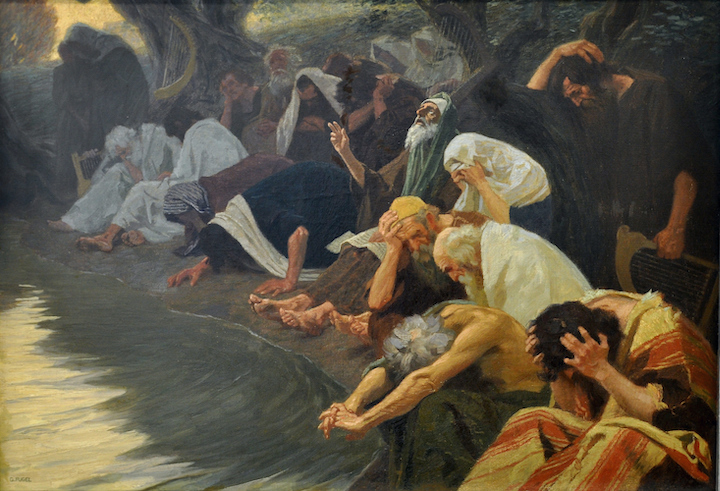As we started the penitential season of Lent on Ash Wednesday, we heard the solemn words: “Remember, you are dust and to dust you shall return.” To be frank, there’s not a whole lot of wiggle room in that admonition. It’s stark – and sobering.
Life has come and life will go. We are dust and we’re going to return to dust. What does that mean for us? Are the ashes just some morbid way to make fun about death? Or is there something deeper – and even charitable – in the devotional practice of ashes during Lent?
These questions beg for candor. And so, we’re called to examine the placement of ashes and the internal logic of Lent. What is it all about? A casual observation of most contemporary believers would seem to indicate that the ashes have become a kind of bizarre religious jewelry, largely devoid of meaning and worn by the most shameless among us. Meanwhile, Lent itself has become one big project in self-improvement or self-actualization.
Is this the Lent of our Sacred Tradition? Are these the best answers to the questions about Lent?
No, these are not Christian answers. These are counterfeits – false answers that reflect the transvaluation and selling out of the spiritual treasury of the Church and Western civilization. These compromised answers reflect a raw domestication of the intensely Christ-centered and profoundly penitential season of holy Lent.
The Sacred Tradition of the Church, going back millennia to the time of the apostles and other disciples, has provided us with an annual call to re-focus our lives on the Paschal Mystery, namely, the Passion, Death and Resurrection of Jesus Christ. And to use the gift of time – called “the sacrament of the present moment” by Father Jean Pierre de Caussade – to cooperate with grace, work out our salvation with “fear and trembling,” and be made fit for the kingdom of God. (cf. Phil 2:12) This is Lent.
In our practices during the sacred season, we can appropriate for ourselves the fact that Lent has been catechetically designed by the ancient tradition of the Church to give each believer wisdom that is both immanent and eternal. It is a yearly exhortation about appreciating the shortness of life and the promise of glory in Jesus Christ. It shows us, with ashes and ascetical practices, that, as the psalmist observes: “The days of our life are seventy years, or perhaps eighty, if we are strong; even then their span is only toil and trouble; they are soon gone, and we fly away.” (Psalm 90:10)

And yet, it is precisely the sense of the shortness of our lives that spurs us to discern eternity. It summons us beyond the malaise and busyness of life, to see the urgency and grace of each moment, here and now. The brevity of our lives provokes us to use each moment, intentionally and purposefully, to fight vice, nurture virtue, deepen prayer, serve those in need – and so draw closer to Jesus Christ, the Resurrection and the Life. (cf. John 11:25)
With this temporal and eternal wisdom in mind, Lent moves us from Ash Wednesday to its First Sunday. In the Gospel of the First Sunday of Lent, the Church takes us to the desert. In such a place of solitude, the deception of our minds and the fallenness of our hearts are exposed to the light and heat of truth.
The various temptations to comfort, vanity, and power are unmasked and we are shown the harm they do in our souls. The desert provides no hiding place. We have to claim each moment, choose or lose its grace, and allow the particular moments and specifics acts of our lives to lead us closer to the riches of the glory.
It should be no surprise, therefore, that the ecclesial curriculum of Lent would lead us from the desert in its First Sunday to Mount Tabor and the manifestation of the Lord’s divinity in its Second Sunday. The Gospel account of the desert leads to the Gospel account of the glory. But this is not a set path. It’s not an entitlement or a given. If we want the glory, we must labor and persevere through the desert.
Lent is a reminder of this desert, indeed it becomes a small desert itself. It’s a renewed call to our hearts. It’s a prompting to live each moment is an opportunity where our definitive “yes” to the Lord Jesus can be played out in a thousand different yeses of mercy, patience, integrity, charity, and kindness.
In revering the present moment, and cooperating with God’s grace here and now, we are formed and fashioned for the everlasting kingdom of light and goodness. Properly understood, the ashes and ascetical practices of Lent are not empty rituals or exercises in self-improvement, let alone self-aggrandizement. They are an annual gift from the Church. They’re an invitation for us to live this passing life well so that eternal life with God can be ours.
*Image: By the Rivers of Babylon (An den Wassern Babylons) by Gebhard Fugel, 1920 [Städtische Galerie Fähre, Bad Saulgau, Germany]. The reference is to Psalms 137:1: “By the rivers of Babylon, there we sat down, yea, we wept, when we remembered Zion.”















